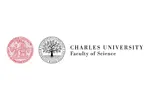

Czech Republic (the)
Faculty of Science, Charles University| The award | How you will study | Study duration | Course start | Domestic course fees | International course fees |
|---|---|---|---|---|---|
| PhD | Full-time | - | - | - | - |
Project Summary:
Amphiphilic peptidomimetics represent an attractive alternative to conventional antibiotics, because their selectivity and mechanism of action are based on different molecular principles. In this project, our main goal is to obtain a library of metallacarborane-containing peptidomimetics with potent antibacterial activity, high selectivity, and immunity to resistance development by bacteria. Two types of peptidomimetics will be obtained: peptoids and polymers. The amphiphilic character of peptidomimetics will be reinforced by the incorporation of hydrophilic cationic moieties and lipophilic metallacarboranes. To fully understand the antibacterial potential of these peptidomimetics, we are planning concerted physicochemical studies completed by a biological evaluation of antibacterial and antibiofilm activity, toxicity, and immunomodulatory activity. These studies will allow us to identify peptidomimetics with the best antibacterial activity and to understand the underlying molecular and supramolecular principles.
Related publications:
[1] Fink, K.; Uchman, M. Boron cluster compounds as new chemical leads for antimicrobial therapy. Coordination Chemistry Reviews 2021, 431(15), 213684. https://doi.org/10.1016/j.ccr.2020.213684.
[2] Vrbata, D.; Uchman M. Preparation of Lactic Acid- and Glucose-Responsive Poly(?-caprolactone)-b-Poly(ethylene oxide) Block Copolymer Micelles Using Phenylboronic Ester as a Sensitive Block Linkage. Nanoscale 2018, 10(18), 8428-8442. https://doi.org/10.1039/C7NR09427B.
The ideal candidate should have MSc. or equivalent in Chemistry, Physics, Material Science or a related field, working knowledge of English and basic knowledge of polymer
Contact Faculty of Science, Charles University to find course entry requirements.
Below are some suggested courses at other providers that you may also be interested in:
If you do not meet the entry requirements for this course then consider one of these postgraduate preparation courses from another institution:
See all Postgraduate pathway coursesThere are 136 other courses listed from Faculty of Science, Charles University. A selection of these are displayed below:
A postdoctoral position to study thermal effects in landslides Postdoc
Faculty of Science, Charles University
Find out moreActivation of STING signaling in tumors associated with human papillomaviruses PhD
Faculty of Science, Charles University
Find out moreAdvanced Electron Microscopy Techniques for the Characterization of Tunable Zeolitic Architectures PhD
Faculty of Science, Charles University
Find out moreAmphiphilic Peptidomimetics Containing Metallacarboranes as a Design Strategy for Future Antibiotics PhD
Faculty of Science, Charles University
Find out moreJoin the Сưłć´«Ă˝ email list and never miss a chance to turn your study abroad dreams into reality!

See other universities in Prague
Find out more about studying in Czech Republic (the)